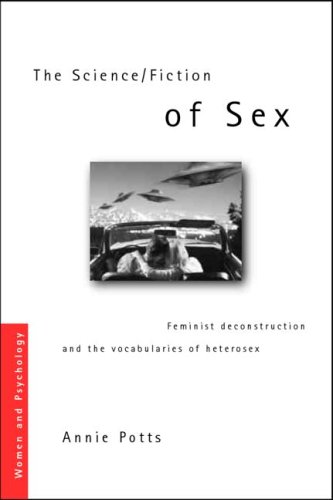Women and Psychology
1 total work
What can we learn from exploring the differences in male and female orgasmic experience? Is the penis an entity with a mind of its own? These issues and others, such as the popular portrayals of male sexuality as active and outwardly focused and female sexuality as passive and internally located, are discussed in The Science/Fiction of Sex. Contemporary feminist and poststructuralist theories of sex and gender are explored alongside an investigation of how people make sense of such concepts as heterosexuality, orgasm, sexual dysfunction, femininity and masculinity, and safer sex practice.
Potts asks men and women about their actual experiences of heterosex. This interview material, combined with excerpts from sexological and medical texts and features from film and television, draws attention to the ways in which western cultural constructs influence our ideas and experiences of the body, sex, and gender. Potts also uses deconstructive theory as a textual tool, concentrating on how binary oppositions such as inside/outside and mind/body impact on our understandings of heterosex, and affect the power relations between women and men. She also examines how the radical postmodern theories of the body and sexuality proposed by Irigaray, Lyotard, and Deleuze and Guattari disrupt such dualistic modes of understanding and experiencing sexualized bodies. The Science/Fiction of Sex will be of interest to those studying women and psychology as well as gender studies, cultural studies, feminist studies, sociology, philosophy, public health and education.
Potts asks men and women about their actual experiences of heterosex. This interview material, combined with excerpts from sexological and medical texts and features from film and television, draws attention to the ways in which western cultural constructs influence our ideas and experiences of the body, sex, and gender. Potts also uses deconstructive theory as a textual tool, concentrating on how binary oppositions such as inside/outside and mind/body impact on our understandings of heterosex, and affect the power relations between women and men. She also examines how the radical postmodern theories of the body and sexuality proposed by Irigaray, Lyotard, and Deleuze and Guattari disrupt such dualistic modes of understanding and experiencing sexualized bodies. The Science/Fiction of Sex will be of interest to those studying women and psychology as well as gender studies, cultural studies, feminist studies, sociology, philosophy, public health and education.
